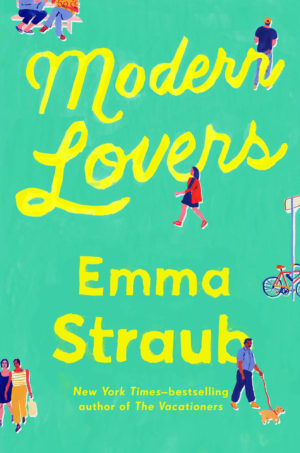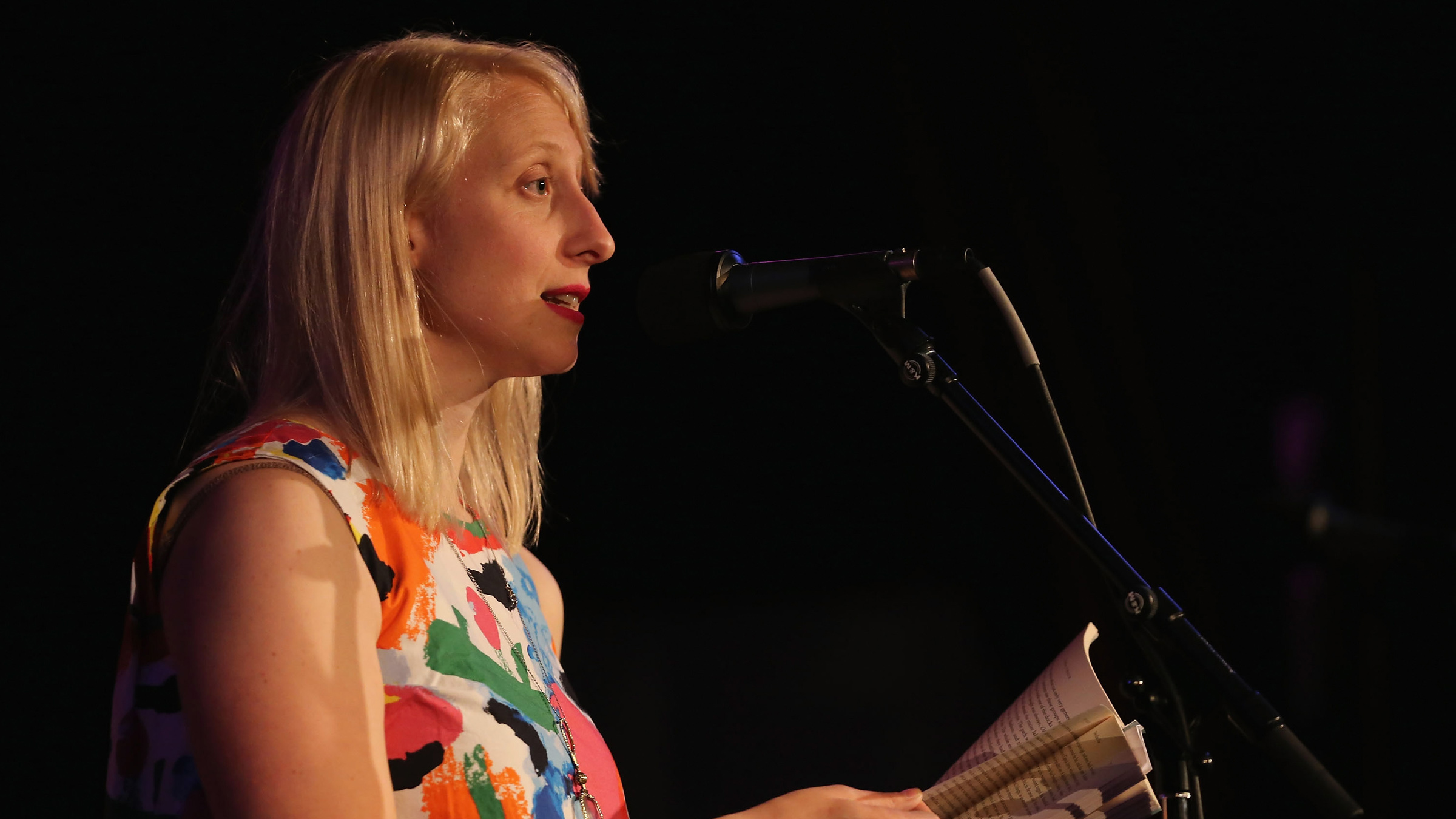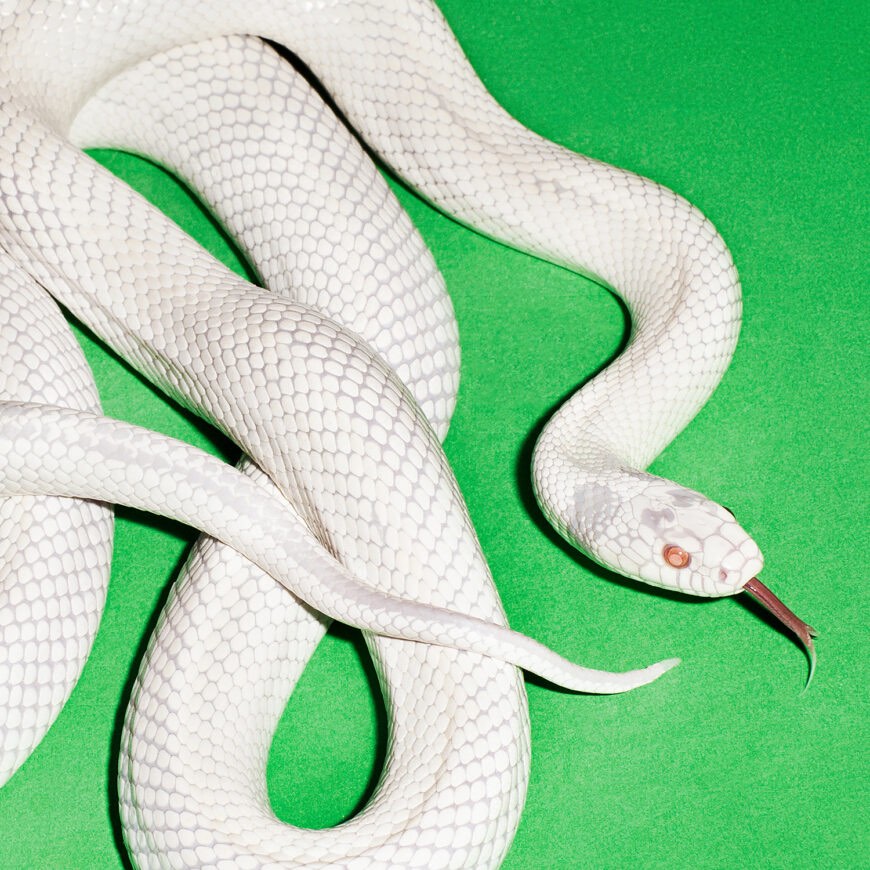Sometimes it feels as if all of contemporary American fiction is set in Brooklyn, featuring relocated Midwesterners with MFAs struggling to find themselves against the backdrop of America’s cultural capital. A quick survey of book jackets at Barnes & Noble finds that an almost impossible number of writers traveled the same path, from Columbus to Iowa City to Williamsburg. Fiction of the moment seems settled in lost pilot scripts from Girls, b-plots to Hannah’s coming of age. While Emma Straub’s Modern Lovers sets its characters in the same milieu—its main protagonists even share an alma mater (Oberlin) with Lena Dunham—the novel moves beyond the tropes of hipster conflict in creating a rich, vibrant, and beautifully crafted story about friendship, family, and the inescapable past.
Andrew, Elizabeth, and Zoe were friends in school, and together with the mercurial Lydia they formed Kitty’s Mustache, once Ohio’s most popular college-rock band. While the former three left music and retreated into adulthood, Lydia went on to fame, fortune, and overdose. The others retreated to Ditmas Park, Brooklyn, with their residual checks and trust funds to participate in gentrification. They get married (Andrew to Elizabeth, Zoe to Jane), they have children (Harry to the former couple, Ruby to the latter), they indulge in urbanity. In short, they become middle-aged.
 Some twenty years after Oberlin, a production company is eager to make a film of Lydia’s life; after the band broke up, she bought the rights to her their one great song (“Mistress of Myself”) and rode it to membership in the Twenty-Seven Club. Revisiting their past forces Andrew, Elizabeth, and Zoe to confront the arc of their lives and challenges the foundation upon which their present balances precariously.
Some twenty years after Oberlin, a production company is eager to make a film of Lydia’s life; after the band broke up, she bought the rights to her their one great song (“Mistress of Myself”) and rode it to membership in the Twenty-Seven Club. Revisiting their past forces Andrew, Elizabeth, and Zoe to confront the arc of their lives and challenges the foundation upon which their present balances precariously.
At the outset of the novel there’s not much to like about these characters, nor is there much to identify with in their lives. They are beacons of privilege. They are insulated and ignorant. They are real estate and private schools and book clubs and yoga studios and more yoga studios. At one point Straub observes, “It was a perfect night—the end of June, when even Brooklyn had to admit nothing was the matter.” In the time of the novel in the United States, communities from coast to coast are struggling with a failing economy, race and class struggles, and violence, but Modern Lovers’ characters live in a bubble where such challenges lack congruence. As their story evolves, though, Straub reveals a tale of a never-ending past that moves beyond the realities of means and into the truths of our collective flaws.
Straub creates sympathy and affection in the reader, as the grandeur of entitlement fades into a compelling story capturing a moment in our time, a snapshot of urban American life. Using pop culture references and cultural signifiers to timestamp the narrative, Modern Lovers exists as an Instagram post of the era, forever attached to Rokus and Kardashians and Taylor Swift. In committing herself to a temporal setting, Straub creates a vivid sketch of a celebrity-, technology-, and fad-obsessed culture, one that informs the midlife and early life crises of her characters.
In contrast to their parents’ pasts, their present seems more coddled, more protected, as if the experiences of their parents’ generation forced the insulation of their present.
But the essence of Modern Lovers exists within its teenaged protagonists, Harry and Ruby. In these two Straub distills the contradictions of contemporary young love and almost-adults in the early twenty-first century. They are sexually free but virginal, hopeful for their futures but weary of the journey, impulsive in love but conscious of their adolescence. In contrast to their parents’ pasts, their present seems more coddled, more protected, as if the experiences of their parents’ generation forced the insulation of their present. Straub barely mentions the adults’ parents, but they are endlessly present in their children’s lives, a reflection of the era of helicopter parenting. In Harry and Ruby’s story we are presented with the realities of love in the age of transferability, of Tinder and OK Cupid and polyamory. While their parents’ experiences with love both define and haunt them, Harry and Ruby’s love revels in its fleeting nature.
Modern Lovers extends the coming-of-age story beyond adolescence and builds to what can best be described as a family rom-com. The novel’s characters live the college dorm dreams of the reader and are then forced to confront the realization of those dreams. Straub’s writing is effortless and engaging, ignoring literary device and experimentation in favor of competent and constructed storytelling. Weighed down with both their histories and mythologies, Modern Lovers’ characters are able to find happiness and comfort not in the culture of a moment, but rather in the timeless elements of our lives—family, friendships, and a good song. FL









